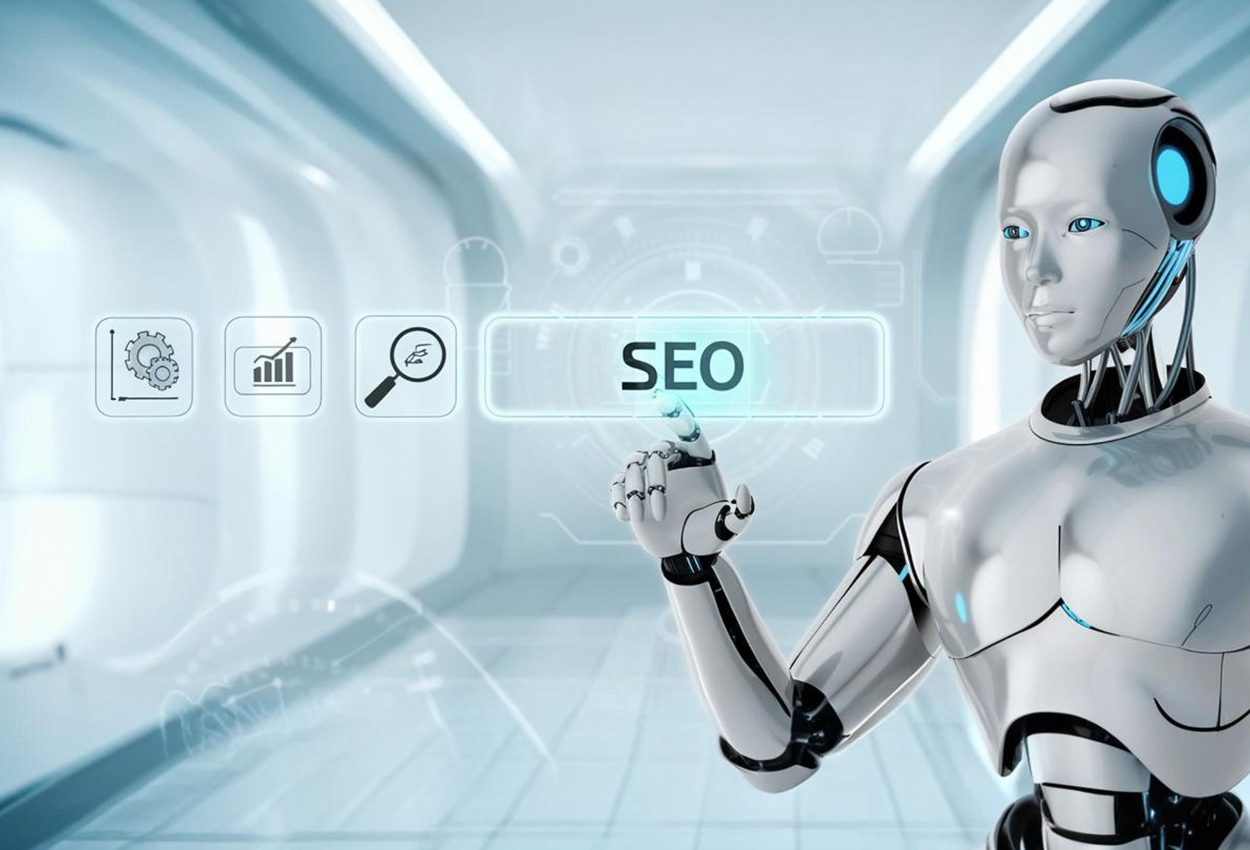

Navigating the digital landscape can feel like maneuvering through an ever-changing labyrinth. With search engines becoming smarter and competition growing fiercer, staying on top of SEO can seem daunting. Enter Artificial Intelligence (AI), a transformative force that’s reshaping how we approach search engine optimization. And AI in SEO is not just a buzzword but a crucial tool for anyone looking to boost their online visibility.
In this post, we’ll explore how AI SEO tools and SEO automation are changing the game and how you can harness these advancements for better rankings. Let’s dive into how AI-driven content optimization can give your SEO strategy the edge it needs.
AI refers to human-like intelligence possessed by machines. This includes learning (gathering information and rules for its use), reasoning (applying rules to draw conclusions), and self-correction. In the context of SEO, AI involves utilizing algorithms and models to analyze data, predict trends, and automate tasks that would traditionally require human intervention.
AI's impact on SEO is profound and multifaceted. A significant way AI influences SEO is through its ability to analyze and process huge volumes of data far more quickly than a human can. AI in SEO can enhance various aspects, including keyword research, content creation, and user experience.
For instance, AI-driven content optimization tools can analyze top-performing content and generate insights into what makes it successful. By leveraging AI SEO tools, businesses can identify trending topics, optimize content for relevant keywords, and improve their overall SEO strategy. Additionally, AI enhances SEO automation by streamlining repetitive tasks, including meta tag generation and link building, thus allowing SEO professionals to focus on more strategic activities.
1. Enhanced Keyword Research: AI-powered tools can analyze vast amounts of search data to uncover hidden keyword opportunities. These tools not only provide insights into popular search terms but also predict emerging trends, helping businesses stay ahead of the curve.
2. Improved Content Creation: AI-driven content optimization tools can suggest content improvements based on performance metrics and user engagement. They can also generate content ideas and assist in creating high-quality content that aligns with user intent.
3. Efficient SEO Automation: SEO automation has been greatly enhanced by AI, reducing the need for manual intervention in tasks like keyword tracking, backlink analysis, and performance reporting. This efficiency allows SEO teams to focus on strategic initiatives rather than routine tasks.
4. Personalized User Experience: AI-enabled tools can analyze the behavior and preferences of the users to deliver personalized content and recommendations. This personalization improves user engagement and satisfaction, which can positively impact search engine rankings.
1. Data Privacy Concerns: AI depends on extensive data to operate efficiently. This can raise concerns about its privacy and security, particularly regarding sensitive user information. This makes it essential to adhere to data protection regulations to address these concerns.
2. Dependence on Quality Data: AI tools are only as good as the data they are trained on. Poor-quality data can cause inaccurate predictions and recommendations, potentially affecting your SEO strategy negatively.
3. Over-Reliance on Automation: While AI SEO tools and SEO automation streamline processes, there is always a risk of over-reliance on these tools. Human expertise is still essential for interpreting data, making strategic choices, and balancing automation with manual input.
4. Evolving Algorithms: Search engine algorithms are continually changing, and AI tools need to adjust to these updates. Staying up-to-date with the advancements ensures that your AI tools are compatible with current algorithms is essential.
1. Utilize AI SEO Tools for Keyword Research: Incorporate AI-driven keyword research tools to identify high-potential keywords and content opportunities. These tools can provide insights into keyword volume, competition, and related terms, helping you make data-driven decisions.
2. Implement AI-Powered Content Optimization: Use AI-driven content optimization tools to analyze and enhance your content. These tools can suggest improvements, optimize for relevant keywords, and ensure that your content meets user intent.
3. Automate Routine SEO Tasks: Leverage SEO automation to streamline repetitive tasks such as keyword tracking, link building, and performance reporting. This will free up time for more strategic activities and allow you to focus on optimizing your overall SEO strategy.
4. Monitor and Adapt: Continuously monitor the performance of your AI-driven SEO efforts. Analyze data to identify key trends, evaluate the success of your strategies, and make any required adjustments to maintain a competitive edge.
As AI technology continues to advance, its role in SEO will only become more prominent. Embracing AI SEO tools and SEO automation can significantly enhance your SEO efforts, from keyword research and content creation to user experience and performance tracking. However, it's crucial to strike a balance between leveraging AI and maintaining human expertise in your SEO strategy.






Timeless digital innovations aimed to make your brand stand out in a crowded category.
Get Started


